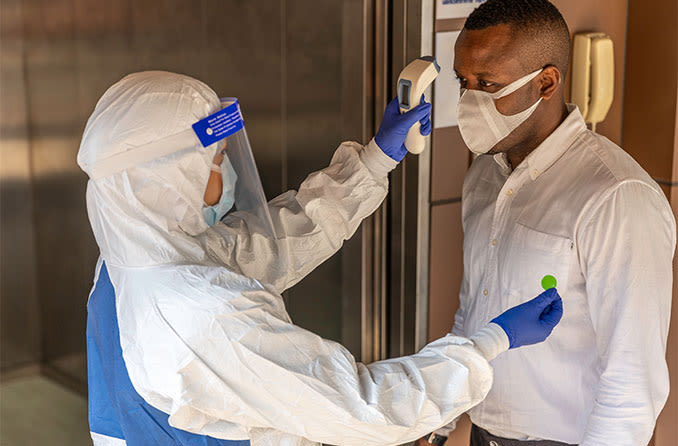Should you have cataract surgery amidst COVID-19 concerns?

There is no reason related to COVID-19 for you to avoid or delay cataract surgery and its benefits of improved vision and enhanced quality of life. In fact, medical facilities, including surgical centers, are among the safest locations that you might visit.
Naturally, there are concerns about the novel COVID-19 virus for people who have medical conditions such as heart disease, diabetes and hypertension, among others. These concerns have led to a dramatic drop in older people seeking medical care due to worry about potential exposure to others who might have the virus.
However, by not receiving the medical care that they need, many older people are putting themselves at greater risk than the risk COVID-19 itself.
The New England Journal of Medicine reported a 39% reduction in patients having stroke evaluations during the pandemic. Another source reported a similar percentage drop in people being seen for heart attacks. Visits to the emergency department were down 25%. The outpatient surgery center where I perform cataract surgery recently experienced a 32% reduction in procedures.
Surgical procedures and COVID-19 safety
Concerns about seeking out necessary medical or surgical treatment during the coronavirus pandemic are understandable, but they aren’t justified.
If cataracts are interfering with your eyesight and you have been recommended restorative cataract surgery, you can be confident that your procedure will be carried out safely.
Trained medical personnel are intimately familiar with surgical-level hygiene and performing procedures under sterile conditions to optimize your safety. Remember, surgical facilities operate with safety first — protocols are in place to prevent infection during surgery.
These centers and doctors’ offices now employ safety protocols for COVID-19 to provide confidence that you can feel safe in seeking the healthcare that you need.
Perhaps most reassuring to you is that patients are required to be “medically cleared” before having cataract surgery. “Medical clearance” means that your primary care doctor attests that you are not experiencing any uncontrolled medical conditions, including a respiratory infection, such as COVID-19.
Actively sick patients, including those with COVID-19, will not be medically cleared for cataract surgery. These patients will not be allowed into the same facilities that you would visit for your cataract surgery.
As a result, you can feel reassured that the chances are close to zero that you would be exposed to someone who is sick from COVID-19 in the cataract surgery center you visit.
READ NEXT: Should I wait to have eye surgery until after COVID-19?
How to Stay Safe by Practicing Hygiene IQ
New York City and Tokyo are very similar cities in their populations and densities of buildings and people. Yet, their percentages of COVID-19 were significantly different: Tokyo had only 3% of the cases of New York City.
The Japanese are known for their high level of hygiene. In Japanese culture, people do not shake hands but bow instead, and when they are sick, they tend to wear masks in public to be considerate of not infecting other people.
We can incorporate important lessons from Japan to keep our COVID-19 infection rates low by practicing optimal hygiene:
Wash your hands often with warm, soapy water or use a disinfectant that is 60% or more alcohol to kill any virus on your hands.
Don’t touch your mouth, nose or eyes with your hands to avoid infecting yourself.
Wear a mask in public to be considerate of others.
Check out our coronavirus section to read more articles about COVID-19 and your eye health.
Page published on Friday, August 21, 2020




